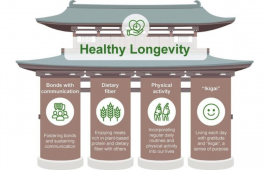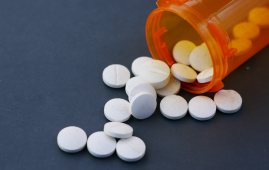People who are age 60 or older should not begin taking daily aspirin to prevent a first heart attack or stroke, according to new recommendations from the U.S. Preventive Services Task Force.
What’s more, people ages 40-59 should take daily aspirin only if they have a high risk of cardiovascular disease and have talked with their doctor about whether to start taking aspirin to prevent a heart attack or stroke. After age 75, there is little benefit in continuing daily aspirin use.
“Because the chance of internal bleeding increases with age, the potential harms of aspirin use cancel out the benefits,” Michael Barry, MD, the task force’s vice chair and director of the Informed Medical Decisions Program at Massachusetts General Hospital, said in the statement.
Heart disease and stroke are the leading causes of death in the U.S., making up more than 1 in 4 deaths, the task force said. Although daily aspirin use has been shown to lower the chance of having a first heart attack or stroke, it can also increase the risk for bleeding in the brain, stomach, and intestines.
For years, doctors have recommended that patients in their 50s begin taking baby aspirin daily to protect against heart attacks and strokes. But in recent years, new evidence has highlighted the possible harms of daily aspirin, and doctors began shifting their recommendations.
The U.S. Preventive Services Task Force (USPSTF), an influential volunteer panel of national experts, publishes guidance to inform best practices in medicine. The new update marks a major shift in official recommendations.
“It is important for the public to understand that for the vast majority of Americans without pre-existing heart disease, aspirin does not provide a net benefit. The harms are approximately equal to any benefits,” Steven Nissen, MD, a cardiologist at the Cleveland Clinic, told ABC News.
“The USPSTF is just catching up with this widely accepted scientific viewpoint,” he said. “For nearly 20 years, the FDA has advised against routine use of aspirin for prevention in patients without heart disease.”
Importantly, the updated recommendations are aimed at people who haven’t yet started taking daily aspirin, the task force said. The panel of experts didn’t issue guidance for people who already have heart disease, have had a stroke, or are already taking a daily aspirin. The task force still recommends using it to prevent a second heart attack or stroke.
“We want to emphasize that these recommendations are focused on starting aspirin to prevent a first heart attack or stroke,” John Wong, MD, a task force member and interim chief scientific officer at Tufts Medical Center, said in the statement.
“Anyone who already takes this medicine and has questions about it should speak with their health care professional,” he said.











Leave a Comment